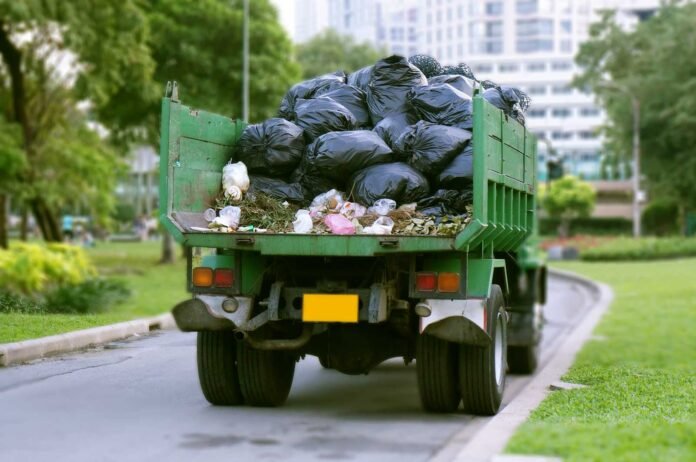Dubai, a city renowned for its innovation and luxury, is equally committed to maintaining its pristine environment. As the metropolis grows, so does the challenge of managing waste effectively. Waste removal in Dubai is not just a matter of cleanliness; it’s an integral part of the city’s commitment to sustainability and efficient urban management. Whether you’re a resident, business owner, or part of the hospitality industry, understanding the waste removal process in Dubai can help you contribute to a greener, more sustainable city.
The Importance of Waste Management in Dubai
Waste management in Dubai is a critical issue given the city’s rapid development and high population density. Proper waste disposal is essential for maintaining public health, ensuring environmental protection, and supporting the city’s ambitious sustainability goals. Dubai’s government has implemented various strategies to handle waste effectively, focusing on reducing, reusing, and recycling materials to minimize the environmental impact.
One of the significant initiatives in Dubai’s waste management strategy is the Dubai Integrated Waste Management Facility (DIWMF). This state-of-the-art facility is designed to handle large volumes of waste through advanced technologies, including waste-to-energy systems that convert waste into renewable energy, thereby reducing landfill usage. The DIWMF aligns with Dubai’s vision to become a global leader in sustainable waste management.
Types of Waste Removal Services in Dubai
Dubai offers a range of waste removal services tailored to different needs. Here’s an overview of the key services:
- Residential Waste Removal: For households, Dubai provides regular waste collection services. Residents are required to separate their waste into general, recyclable, and organic categories. The city’s waste management providers collect waste on a scheduled basis, ensuring that neighborhoods remain clean and sanitary.
- Commercial Waste Removal: Businesses in Dubai generate various types of waste, from office waste to food scraps. Commercial waste removal services are designed to handle these diverse waste streams efficiently. These services often include regular pickups, recycling programs, and special handling for hazardous materials.
- Construction Waste Removal: With the city’s booming construction industry, managing construction and demolition waste is crucial. Dubai’s waste management services for construction sites involve removing debris, recycling construction materials, and ensuring compliance with environmental regulations.
- Industrial Waste Removal: Industries produce specialized waste that requires careful handling. Dubai’s industrial waste removal services cater to this need by offering customized solutions for hazardous waste, electronic waste, and other industrial byproducts.
- Event Waste Management: Large events and festivals generate significant amounts of waste. Dubai provides event-specific waste management services to handle the influx of waste during major public gatherings, ensuring that events leave minimal environmental impact.
Innovations in Waste Management
Dubai is at the forefront of integrating technology into waste management. Innovations include smart waste bins equipped with sensors to monitor waste levels, automated waste collection systems, and apps that provide real-time updates on waste collection schedules. These technologies help optimize waste collection routes, reduce operational costs, and improve overall efficiency.
The city is also investing in research and development to explore new waste management technologies. For instance, advancements in waste-to-energy technologies are playing a crucial role in converting waste into valuable resources, thus supporting Dubai’s sustainability goals.
The Role of Residents and Businesses
While Dubai’s waste management services are robust, the role of residents and businesses in waste reduction cannot be overstated. Here are some ways you can contribute:
- Segregate Waste: Proper segregation of waste into recyclable, organic, and general categories helps streamline the recycling process and reduces contamination.
- Reduce and Reuse: Embrace practices that minimize waste generation. Use reusable products, reduce single-use plastics, and opt for products with minimal packaging.
- Participate in Recycling Programs: Take advantage of Dubai’s recycling programs by ensuring that recyclable materials are disposed of in the designated bins. Participate in community recycling initiatives and stay informed about local recycling guidelines.
- Support Sustainable Businesses: Choose businesses that prioritize sustainability and responsible waste management practices. Supporting eco-friendly companies helps drive the demand for greener practices.
Future Directions in Waste Management
Dubai’s waste management strategy is continually evolving to address emerging challenges and opportunities. Future directions include enhancing waste sorting and recycling capabilities, increasing public awareness about waste management, and expanding partnerships with private sector stakeholders to drive innovation.
One of the key goals is to achieve zero waste to landfills by implementing more comprehensive recycling and waste diversion programs. The city’s vision includes leveraging advanced technologies and fostering a culture of sustainability among residents and businesses.
Conclusion
Waste removal in Dubai is a dynamic and essential aspect of maintaining the city’s cleanliness and sustainability. With a range of services designed to address different types of waste and a commitment to innovation, Dubai is setting an example for efficient urban waste management. By understanding and participating in these waste management practices, residents and businesses can contribute to a cleaner, greener Dubai.
